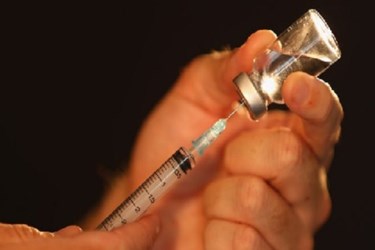The White House And FDA Issue Rule On Responsible Antibiotic Use In Animals
By Melissa Lind, contributing writer

The Obama administration has issued its new rules regarding antibiotic use in meat and poultry production. Consumer groups have applauded the action, but indicate that the rules may not be tight enough.
The White House, in conjunction with the FDA, has expressed serious concern over the continuing emergence of antibiotic-resistant bacteria and issued new rules which require “responsible antibiotic-use policies.” This new rule is part of an overall effort by the White House to combat the growth of antibiotic-resistant strains of salmonella, E. coli, and others in both humans and animals.
The June 2 announcement includes the elimination of broad-scale antibiotic use for “growth production.” The new rule is set to go into effect as a requirement in December of 2016 and will restrict meat and poultry producers from using medically-important antibiotics for anything other than preventing, controlling, and treating an infection. Veterinarians will be responsible for prescribing antibiotics at legitimate doses and only when they are needed for health reasons.
The rule formalizes the FDA’s desire to have “growth production” removed from labeling of human-use antibiotics that are also employed in the agriculture industry. In 2013, the FDA has requested that drug manufacturers voluntarily omit the indication, but no formal requirement was made.
As part of the plan, federal agencies will also be encouraged to procure and serve meat and poultry raised under responsible use plans. Tyson Foods has already announced plans to eliminate wholesale preventative uses in some of its flocks, requiring use only for control and treatment and only after prescription by a veterinarian.
Consumer advocacy groups have applauded this action, but indicate belief that it is only a first step. The groups point to the wording of the ruling which indicates that antibiotics for “prevention” of disease will be allowed. That, according to some critics, may allow producers to use antibiotics in a wholesale manner to prevent disease, still treating the whole herd or flock in the same way that the medications were used for growth production.
Tyson Food’s actions appear to go further than the ruling requires, but critics are concerned that the new ruling will allow others in the industry to avoid real change. Particular concern has been expressed about beef and turkey production where no changes have been made and the ruling may provide the loophole needed to continue routine and habitual use of human-use antibiotics.
Other countries, such as the Netherlands, previously enacted similar requirements — first focusing on eliminating “growth promotion” reasons, but following up with other routine overuse when the first guidelines had no substantial effect. The second set of policies that eliminated “prevention” has ultimately reduced animal antibiotic use by 50 percent.
